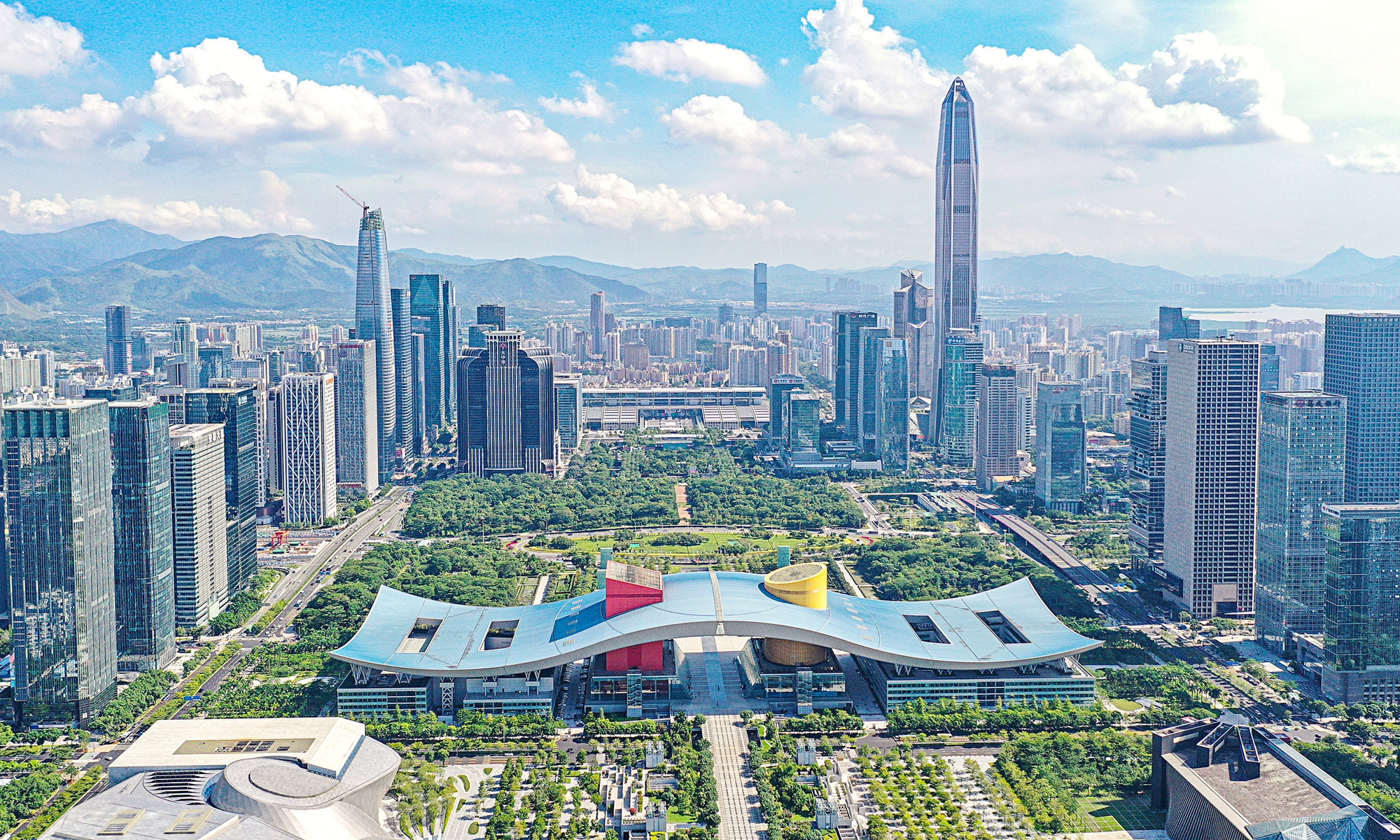China seeks ‘complete’ economic self-reliance
By Wang Cong and Chen Qingqing Source: Global Times Published: 2020/11/1 21:15:09 Last Updated: 2020/11/1 21:45:09
Domestic innovation to gain main focus, but opening to the world to continue: experts

Photo: VCG
Through a series of recent top meetings, official documents and speeches, China's top leadership, including President Xi Jinping, has signaled that the country would focus on boosting the domestic supply chain and homegrown innovation to become completely self-reliant in economy and core technologies, as external risks continue to mount.
While the remarkable focus on economic and technological self-reliance is necessary for the world's second-largest economy to cope with the unprecedented challenges posed by the COVID-19 pandemic as well as the US' unhinged crackdown on China in many areas, China will not abandon its opening-up policies and will continue to pursue global cooperation in key areas, industry analysts said on Sunday.
In an article published on Sunday by the flagship magazine of the Communist Party of China (CPC), Qiushi Journal, Xi said that China should build a self-developed, controllable, safe and reliable domestic production and supply system in fields concerning national security to ensure self-circulation at critical moments and ensure normal economic operation under extreme conditions.
In the article about "major issues" for China's social and economic development strategies in the medium-to-long term, the Chinese president also called for building the "master card" in core technologies, including in high-speed rail, electric power equipment, new energy, telecommunication equipment and other areas.
"In order to ensure China's industrial security and national security, we must build a self-developed, controllable, safe and reliable industrial and supply chain. We should strive to have at least one alternative source for important products and supply channels to form a necessary industrial backup system," Xi wrote.
The article followed a series of recent meetings, official documents and specific measures that aim to boost China's internal circulation and indigenous innovation to become self-reliant and ensure the country's long-term goal of becoming a modern socialist power by 2050.
During the just-concluded fifth plenary session of the 19th Central Committee of the CPC, the highest decision-making body, top Party officials elevated the role of the domestic market and homegrown technologies in China's social and economic development. Specifically, the meeting called for the establishment of a "dual circulation" model with a focus on internal demand as well as an innovation-driven core national strategy to combat rising risks and challenges in the next five to 15 years.
"I think the emphasis on self-reliance on core technologies could not come at a better time given the US' tech war and will spearhead a flurry of support policies for the research and development of many core technological sectors," Tian Yun, vice director of the Beijing Economic Operation Association, told the Global Times, noting that the new strategies reflect the profound challenges China faces both at home and abroad.
Domestically, the world's second-largest economy is going through a deep transition, where downward pressure continues to mount, despite steady progress during the 13th Five-Year Plan period (2016-20) and ability to rein in the COVID-19 epidemic. Globally, the world economy continues to be shadowed by the pandemic and the US has launched a technology war with China that has already seen hundreds of Chinese tech firms being hit by sanctions. Most notably, the US has sought to cut chip supplies to Chinese telecom firm Huawei.

Photo taken on Jan. 28, 2020 shows a Huawei 5G mobile phone testing speed at the Huawei 5G Innovation and Experience Center in London, Britain. (Photo: Xinhua)
Overcoming 'chokehold'
To resolve what officials and experts call a foreign "chokehold" on China's technological sectors, China has already taken concrete steps to develop homegrown technologies. On Sunday, Shenzhen, South China's Guangdong Province, which was a pioneer of China's decades-long reform and opening-up policies and has been described as China's version of "Silicon Valley plus Wall Street," launched a flurry of policies to boost innovation.
Specifically, the policies require investment in basic science research to reach over 30 percent of the overall city government fund for research and development of technologies.
Also, to incentivize researchers, no less than 70 percent of results of any scientific project would be given to developers.Also, echoing the central government's pledge to make breakthroughs in key components and technologies, Shanghai's semiconductor and advanced technology cluster Zhangjiang high-tech park is aiming to transform from a manufacturing hub to a tech-driven center to attract more scientists for fundamental research, although the latter requires long-term investment with no returns in the short term.
"We hope to attract scientists to bring new ideas, be innovative and think out of the box, which is line with our country's growth target of shifting from speed to quality," Tang Shiqing, director of the science and technology commission of the district government of Pudong, Shanghai, told the Global Times on Sunday.
"It's the long-term investment that we must make, despite limited gains from the business perspective," he said.
However, just like Shenzhen is a symbol of China's opening-up, China will continue to open up its domestic market to foreign businesses and pursue global cooperation in technological research and development, despite the renewed focus on self-reliance, officials and industry experts said. During the first-ever press briefing of the CPC Central Committee on Friday, Wang Zhigang, Minister of Science and Technology, said China's technological innovation has never adopted a "closed-door" approach, nor would the country close its door to pursue innovation in the future. "China's technological innovation and development is increasingly inseparable from the world; but global technological advancement also needs China more and more," Wang said.
Though the country's top authority emphasized self-reliance in the high-tech sector, some representatives from the industry, especially those who supply components to major Chinese semiconductor firms like Semiconductor Manufacturing International Corp (SMIC) insisted that the country must uphold an open attitude and cooperative spirit.
"Though domestic semiconductor industry faces difficulties now, we need to cooperate with upstream and downstream firms," Wang Shumin, chairperson of Anji Microelectronics Technology Co, which produces key materials for semiconductor manufacturing, told the Global Times.
While the Chinese government is now attaching great importance to key technology industries like semiconductor production, for business representatives like Wang, it's also an unprecedented opportunity to work with other firms on making major breakthroughs in key components.
"We have to move forward step by step, focusing on concrete projects and being realistic," she said, noting that the difficulties are temporary.